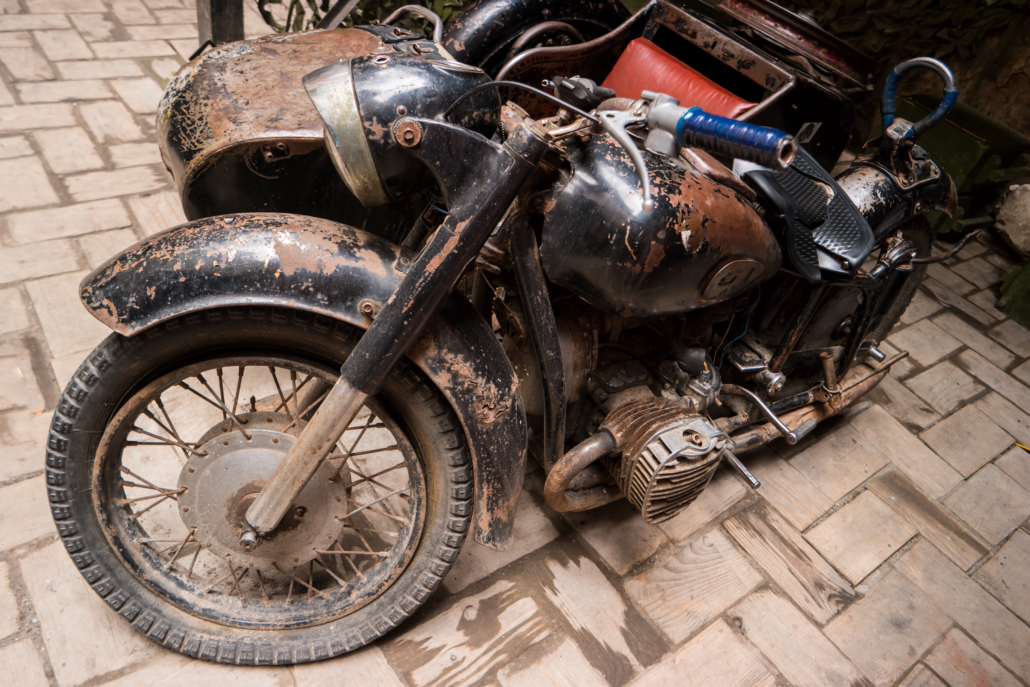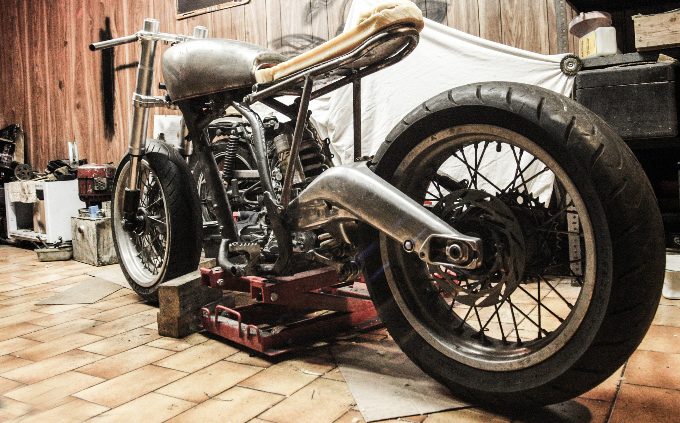Are you staring at a mangled motorcycle in your garage? Maybe it was a beloved ride that met an unfortunate end, or perhaps you acquired a non-running bike in a deal that seemed too good to be true (spoiler alert: it probably was).
Whatever the reason, you’re now stuck with a wrecked bike and wondering, “Who buys wrecked bikes for sale?” At The Bike Buyers, we specialize in wrecked bikes for sale, and we’re here to show you how to turn that unwanted motorcycle into a cash windfall.
Why Should You Put Your Wrecked Bikes for Sale?

There are many reasons why selling your wrecked bike might be the smartest move. Here are a few:
- Free Up Space: Let’s face it, a wrecked bike takes up valuable real estate in your garage, workshop, or even your backyard. Selling it frees up space for a new project, storage, or even that dream motorcycle you’ve been eyeing.
- Make Some Cash: Wrecked bikes do hold value, especially for the parts they contain. Selling it to a reputable buyer like The Bike Buyers can put some cash back in your pocket.
- Environmental Responsibility: Disposing of a wrecked bike improperly can harm the environment. Selling it ensures responsible recycling and reduces your environmental impact.
- Peace of Mind: There’s a certain satisfaction in knowing your unwanted bike has found a new purpose. It could be used for parts to keep another motorcycle on the road or become a project bike for a skilled mechanic.
How Much Value Do My Wrecked Bikes for Sale Have?
Seeing a banged-up bike might lead you to believe it’s worthless. However, wrecked bikes for sale often hold significant value for several reasons:
- Salvaged Parts: Even a heavily damaged bike can contain a treasure trove of good-condition parts. These parts can be lifesavers for mechanics and restorers looking for specific components for their projects.
- Raw Materials: Wrecked bikes are a valuable source of raw materials like steel, aluminum, and copper. Recycling companies can utilize these materials for various purposes, minimizing environmental impact.
- Project Potential: A wrecked bike can be a fantastic project bike for the mechanically inclined. With some skill and elbow grease, you can transform it into a head-turning custom motorcycle.
The specific value of your wrecked bike depends on several factors, including
- Make and Model: Popular motorcycle brands and models tend to have a higher demand for parts, leading to a greater value for wrecked versions.
- Year of Manufacture: Newer bikes with readily available parts often hold more value than older models with parts that might be harder to find.
- Extent of Damage: The severity of the damage plays a crucial role. Bikes with minor cosmetic damage and salvageable parts will garner a higher price than those with extensive frame damage or engine failure.
- Location: Geographical location can influence the value. Certain areas might have a higher demand for specific parts, affecting the overall worth of your wrecked bike.
What are My Options for Wrecked Bikes for Sale?

When it comes to selling wrecked bikes, there are several avenues you can consider exploring:
Cash for Wrecked Bikes Services
Companies such as The Bike Buyers specialize in purchasing wrecked motorcycles outright. This option offers a quick and hassle-free process. At The Bike Buyers, we assess your bike’s make, model, year, and the extent of damage to offer you a fair price. This route is ideal if you’re looking to sell your bike quickly without the hassle of finding individual buyers.
Online Marketplaces
Utilizing platforms like Craigslist, Facebook Marketplace, or specialized motorcycle forums can connect you directly with potential buyers interested in purchasing wrecked bikes. These platforms allow you to create listings with detailed descriptions and photos, reaching a broad audience of enthusiasts and rebuilders who may be looking for project bikes. Selling through online marketplaces gives you more control over the selling price and negotiation process.
Salvage Yards
Salvage yards can be an option if you want to part out the wrecked bike yourself. This approach involves dismantling the bike and selling individual parts to salvage yards or buyers looking for specific components. While it requires more time and effort compared to selling the bike, parting out a bike can yield a higher overall return, especially if the motorcycle has valuable or rare parts.
Each of these avenues has its advantages depending on your priorities—whether it’s convenience, maximizing profit, or engaging with a specific market of buyers. Choosing the right method ultimately depends on your goals and how much time and effort you will invest in selling.
Conclusion
Don’t let your wrecked bike become a permanent fixture in your life. By understanding its value, finding the right buyer, and exploring your options, you can turn that “wrecked bikes for sale” sign into a win-win situation.
Contact The Bike Buyers today or call us at 877-751-8019 for a free quote and discover how we can turn your unwanted motorcycle into cash!
FAQs
How much value does a motorcycle lose with a salvage title?
The market value of a motorcycle with a salvage title typically falls 20-40% below that of a vehicle with a clean title. However, it’s common to find bikes available at discounts of 75% or more. Before finalizing any offer, it’s crucial to determine the motorcycle’s value with a clean title and use this as a benchmark for negotiations.
Why do insurance companies deduct salvage value?
Usually, the insurance company shows no preference for whether you retain your car or not, as it ends up disbursing the same sum regardless. Initially, the company assesses the car’s fair market value. Subsequently, it deducts what it might have recouped by selling it to a salvage yard from that valuation.
How to calculate the salvage value of a motorcycle?
To determine the salvage value of an asset, you can follow these steps:
- Divide the annual depreciation rate by 100
- Multiply this percentage by both the asset’s original price and its age in years.
- Finally, subtract this calculated depreciation amount from the original price to find the salvage value.





